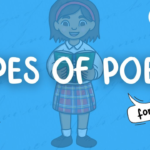Information writing plays a crucial role in education by enabling students to convey facts, ideas, and explanations effectively. Unlike creative or persuasive writing, information writing focuses on presenting objective and well-researched content in a structured manner. When students engage in this type of writing, they not only develop their research and analytical skills but also gain confidence in their ability to communicate knowledge. Using carefully designed prompts can further empower students by encouraging critical thinking and structured expression.
Characteristics of Effective Information Writing
For students to become proficient in information writing, their work must exhibit several key characteristics:
- Clarity and Organization: A well-structured piece with a clear introduction, body, and conclusion makes information easy to understand.
- Use of Credible Sources and Facts: Citing reliable information strengthens the credibility of their writing.
- Engaging and Objective Tone: While informational writing should be engaging, it must remain neutral and fact-based.
- Strong Thesis or Main Idea: A focused main idea ensures that the writing remains relevant and well-organized.
Benefits of Using Writing Prompts
Writing prompts serve as powerful tools in guiding students toward developing their information writing skills. Some key benefits include:
- Encourages Critical Thinking and Research Skills: Students learn to evaluate sources and analyze information effectively.
- Builds Confidence in Expressing Ideas: Structured prompts help students articulate their thoughts with clarity.
- Supports Structured Writing Development: Prompts help students follow a logical flow of ideas.
- Enhances Creativity Within Factual Writing: Even in factual writing, prompts encourage students to explore new ideas and perspectives.

Types of Information Writing Prompts
A. Descriptive Prompts
- Describe how the water cycle works.
- Describe the daily routine of an astronaut.
B. Explanatory Prompts
- Explain the impact of technology on modern education.
- Explain how vaccines work and why they are important.
C. Compare and Contrast Prompts
- Compare and contrast renewable and nonrenewable energy sources.
- Compare two different ecosystems and their characteristics.
D. Cause and Effect Prompts
- What are the causes and effects of climate change?
- How does sleep affect academic performance?
E. How-To or Instructional Prompts
- Write a step-by-step guide on how to conduct a simple science experiment.
- Explain how to create an effective study schedule.
F. Research-Based Prompts
- Investigate and present the history of a scientific discovery.
- Research and explain the significance of an important historical event.
Related Article : Types of Poems for Kids
Strategies for Implementing Writing Prompts
To ensure that students make the most of writing prompts, educators can implement the following strategies:
- Scaffolding Prompts for Different Skill Levels: Adjust the complexity of prompts to match students’ proficiency levels.
- Using Graphic Organizers and Brainstorming Techniques: Help students organize their ideas before writing.
- Encouraging Peer Review and Feedback: Promote collaborative learning through constructive feedback.
- Providing Mentor Texts as Models: Show well-written examples to guide students.
30 engaging prompts for information writing that empower students to explore, analyze, and communicate knowledge effectively:
General Knowledge & Research-Based Prompts
- How does technology impact education?
- Explain the life cycle of a butterfly.
- What are the causes and effects of climate change?
- How does the human brain process information?
- Describe the history and significance of the Olympic Games.
- What are the benefits and drawbacks of social media?
- Explain the water cycle and why it is important.
- What makes a strong leader? Provide examples from history.
- Describe the role of bees in the ecosystem.
- How do volcanoes form and erupt?
STEM & Science-Based Prompts
- How does photosynthesis work?
- Explain the laws of motion discovered by Isaac Newton.
- Describe the difference between renewable and nonrenewable energy.
- What are the different types of clouds and what do they tell us about the weather?
- How do vaccines help prevent diseases?
History & Social Studies Prompts
- Describe the impact of the Civil Rights Movement.
- How did ancient civilizations influence modern society?
- Explain the significance of the American Revolution.
- What were the key causes of World War I?
- Describe how the Great Wall of China was built and its purpose.
Health & Lifestyle Topics
- What are the benefits of a healthy diet?
- How does exercise affect mental health?
- Explain the importance of getting enough sleep.
- What are the dangers of excessive screen time?
- Describe how stress affects the body and how to manage it.
Creative & Future-Focused Prompts
- What might transportation look like in the future?
- How has space exploration advanced over the years?
- Describe the process of writing and publishing a book.
- How do animals adapt to their environment?
- What are the effects of artificial intelligence on society?
Conclusion
Writing prompts are valuable tools that empower students to develop their information writing skills. By engaging in structured and meaningful writing exercises, students improve their ability to research, analyze, and articulate ideas effectively. Encouraging the use of diverse prompts not only strengthens their writing abilities but also nurtures a sense of curiosity and confidence in their knowledge-sharing capabilities. When educators integrate these prompts into daily learning, they create an environment that fosters academic growth and communication skills that will benefit students throughout their lives.
FAQs
1. What is information writing?
Information writing is a type of writing that presents factual, well-researched, and structured content to inform readers about a particular topic.
2. Why are writing prompts useful for students?
Writing prompts help guide students in organizing their thoughts, encouraging critical thinking, and improving their ability to communicate effectively.
3. How can teachers support students in information writing?
Teachers can support students by providing structured prompts, offering feedback, using graphic organizers, and providing mentor texts for reference.
4. What makes a good informational writing piece?
A good informational writing piece is clear, well-organized, objective, supported by credible sources, and presents a strong main idea.
5. How can students improve their information writing skills?
Students can improve by practicing regularly, researching thoroughly, using structured outlines, and seeking feedback from peers and teachers.


